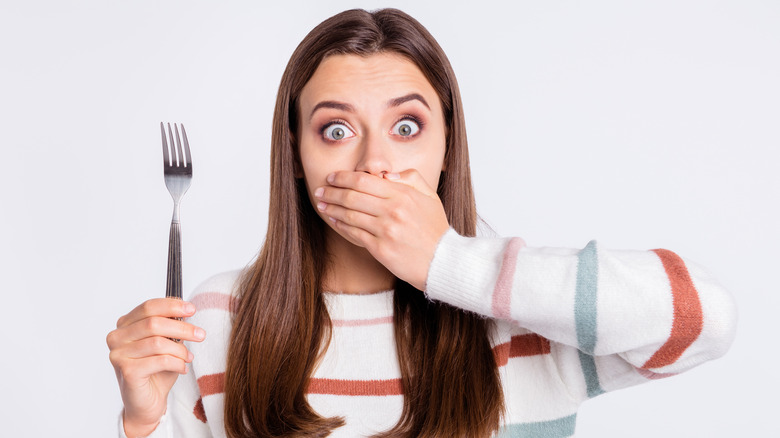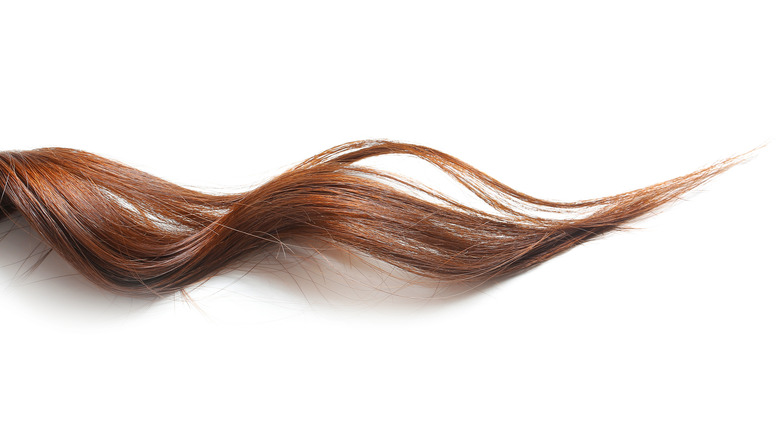Is Accidentally Swallowing A Hair In Your Food Bad For You?
Colorful candies or plastic toys are welcome surprises inside a chocolate egg or cereal box, but a strand of hair in our food — not so much.
When it comes to food manufacturing and handling in the United States, the U.S. Food & Drug Administration (FDA) has federal regulations in place for protection against hair contamination, such as "wearing, where appropriate, in an effective manner, hair nets, headbands, caps, beard covers, or other effective hair restraints." However, the FDA does acknowledge that, by nature, some "unavoidable defects" will make their way into our food. For this reason, health officials have established maximum levels of contaminants permitted in food that pose no risk to human health.
Believe it or not, one such permitted "defect" is rodent hairs — gasp! But for the time being, let's focus on stray human hairs found in food, and how much of a health threat they may pose.
Hair cannot be broken down by the body
Our hair is composed of a densely packed protein known as keratin, Northwestern University dermatologist and hair specialist Maria Colavincenzo explains to Popular Science. As it turns out, keratin is not digestible by the body (via Hair Max). If you're a cat owner, you've seen this demonstrated by your pet regurgitating a hairball. Although hair cannot be broken down by the body, a strand of it that finds a way down your gullet will simply pass through the body without complication.
It's good to know that an accidentally ingested strand of hair doesn't pose any risk of a bowel obstruction. But is it sanitary? Colavincenzo says that it's possible for staph bacteria to show up on human hair, but the amount on a single strand is minuscule. To illustrate just how minuscule, Colavincenzo states that any real risk of gastrointestinal problems would come only from consuming "a whole head's worth" of hair (via Popular Science).
So there you have it. While not the most welcome visitor in your salad or soup, the stray hair accidentally swallowed with your food won't send you running to the hospital or your doctor. It poses so little risk, in fact, that Popular Science reports the FDA has no established regulations regarding the permitted number of strands on a plate. It might be a little gross, but you'll survive that errant surprise.


